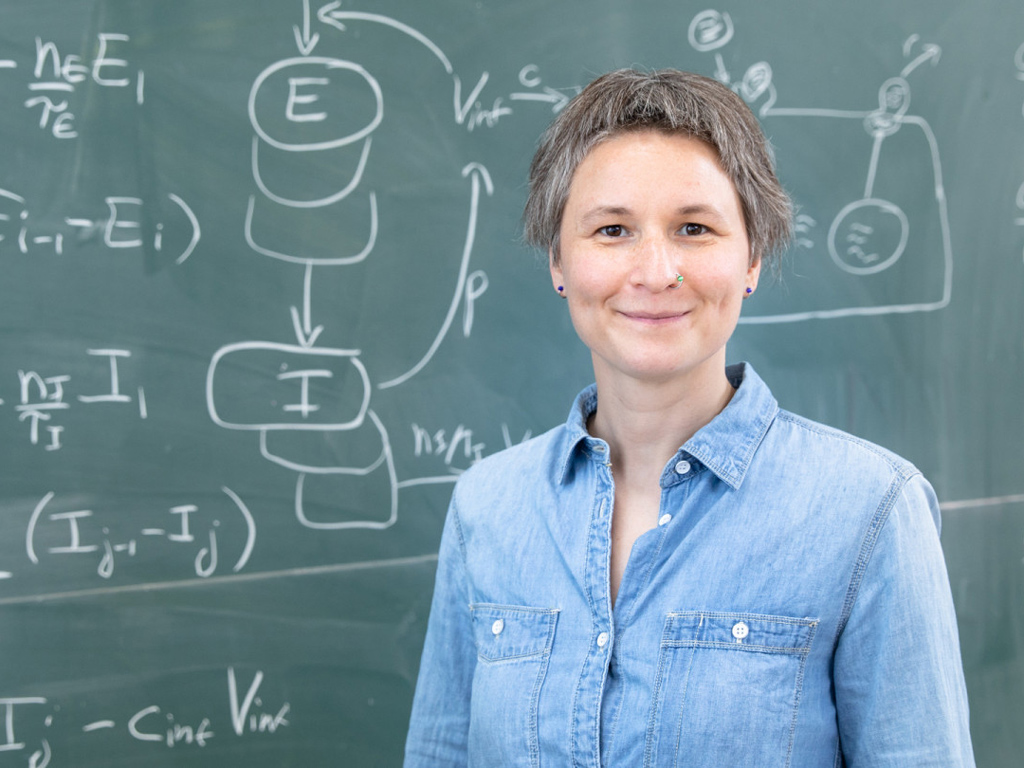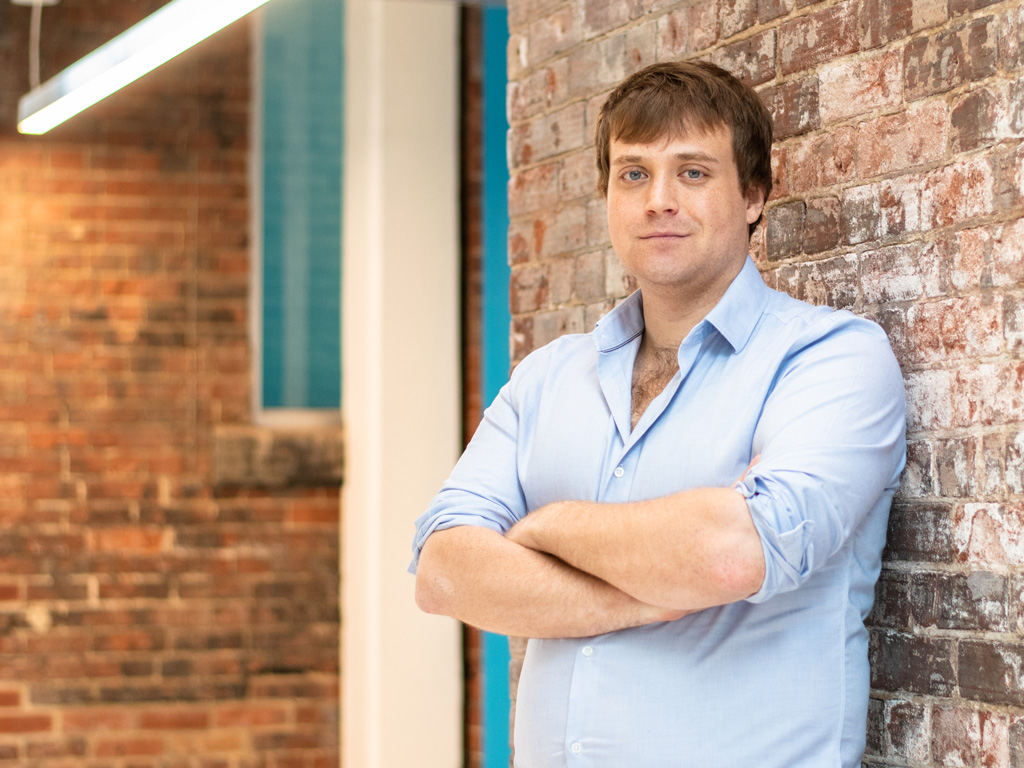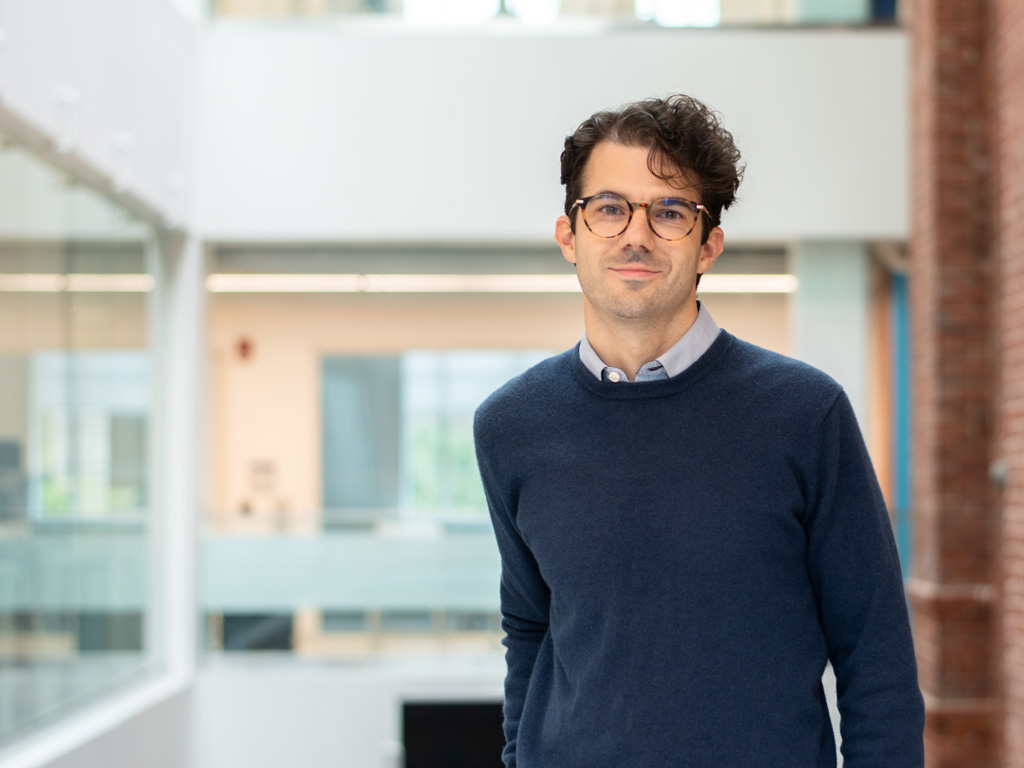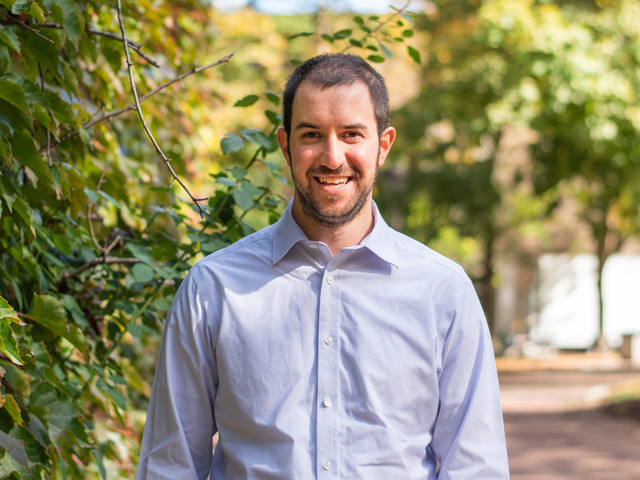Physics Launches New Graduate Field in Complex Systems

When reckless lending by major US banks erupted into the 2008 global financial crisis, many blamed the institutions’ massive size. But when physics professor Sean Cornelius takes a scientific lens to the problem, he sees a deeper culprit.
“History is full of well-intentioned but disastrous policies fouled by the lack of complex systems thinking.”
Cornelius, along with fellow professors Eric De Giuli, Catherine Beauchemin and Aidan Brown are among a growing community that researches systems characterized by nonlinear dynamics, adaptive responses, unexpected behaviors and hence, limited predictability.
Tackling such densely connected problems falls under complex systems science. As of 2020, Ryerson University’s Department of Physics is among only a handful of schools in North America, let alone Ontario, to offer formal training in it, with new courses at the master’s and PhD levels.
Interdisciplinary field, rooted in physics
Students of the new field will have research opportunities in a variety of subspecialties, including statistical physics, biophysics, networks and nonlinear dynamics, and virophysics — the latter, a field founded at Ryerson by Beauchemin. Using the recent COVID-19 pandemic to illustrate the deep interconnectedness of complex systems, Beauchemin explains:
“The immune system is a good example of a complex system. The way it deals with pathogens is not decided centrally. Instead, it is distributed over all the cells of the immune system. To properly interpret and control virus infection spread — not only within a person, but also between individuals — an understanding of complex systems principles is essential.”
Cornelius, an expert in cascading failures, elaborates further on the nature of complex systems: “The interconnectedness of individual parts in these systems can create unintended, large-scale consequences throughout the whole. When you turn one knob in these systems, all the other knobs turn in response. So, what you think you’re doing to solve one problem may ultimately be counterproductive for the entire system.”
Indeed, problems are diverse and complex systems can be found across a wide range of sectors — from ecology to economics, computing to climate change, urban infrastructure, disease transmission, language learning, chemical reaction networks and more.
But while the field is interdisciplinary by nature, De Giuli points out its underpinnings in physics. His own work in statistical physics uncovered the remarkable similarities of language learning in babies to the phase transitions seen in different states of interacting particles — findings that have further potential applications in artificial intelligence.
“Fundamentally, physics is about making sense of the world. In complex systems of all kinds, we see common, universal physical mechanisms actively at work, “says De Giuli. “So, we can take a problem not traditionally within the purview of physics and say ‘Aha, this looks like the phase transition problem that I already understand’, and then apply our tools to it.”
Cornelius agrees: “It’s no surprise that many early complex systems researchers hailed from physics — that’s because it offers the ideal toolbox. Physics already explores broad, diverse phenomena at all scales — from the subatomic to cosmic level. So, as physicists, we’re already comfortable delving into unknown datasets outside of our domain expertise.”

Dr. Catherine Beauchemin

Dr. Sean Cornelius

Dr. Eric De Giuli
Application-focused career directions
As the world becomes increasingly interconnected, the need for complex systems thinking is more apparent and urgent than ever. De Giuli speaks plainly on the challenges facing complex systems science.
“It doesn’t matter how intricate the data or models are,” says De Giuli. “Once a system involves many interacting parts, we need to leave behind the mindset that we can predict everything to the last detail. Instead, we need to design solutions around a range of possibilities. That’s no easy task.”
With its broad applicability, training in navigating complex systems opens many doors and offers graduates ample career flexibility. Within his own area of network dynamics, Cornelius has already seen specialists absorbed by internal research units of major, private-sector companies.
Given the campus’s central location in downtown Toronto, the program offers easy opportunities for fruitful, interdisciplinary research collaborations — across the school’s faculties, and with other universities, hospitals, and industry partners across the Greater Toronto Area.
Professor and biophysicist Aidan Brown adds to the Complex Systems group his expertise in cellular systems. With the department now expanding its research range, Brown’s work may also bridge complex systems with the school’s already extensive research in biomedical physics.
"Cells are the basic units of life,” Brown explains, “and understanding how the collective actions of many non-living molecules leads to living processes is a compelling question across physics, biology, and complex systems."
Professor and biophysicist Aidan Brown adds to the Complex Systems group his expertise in cellular systems. With the department now expanding its research range, Brown’s work may also bridge complex systems with the school’s already extensive research in biomedical physics.

Dr. Aidan Brown
"Cells are the basic units of life,” Brown explains, “and understanding how the collective actions of many non-living molecules leads to living processes is a compelling question across physics, biology, and complex systems."
As the new field makes its debut at Ryerson, De Giuli is lucid about the paradigm shift that complex thinking demands.
“We can’t always predict things perfectly. It requires some humility, but once you accept that fact, it totally changes your view on how a system should interact with society. Then, we can start creating systems robust enough to handle disruptions.”
Heeding his words may well equip incoming students with a key to success for the journey ahead.
Applications now open for Fall 2021
Offered for both MSc & PhD
Research Areas: Virophysics, cellular biophysics, statistical physics of complex systems, networks & non-linear dynamics
